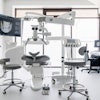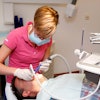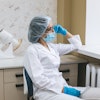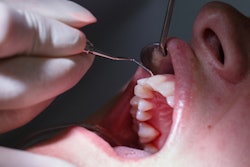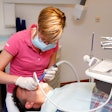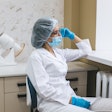
Two studies led by researchers at the Harvard School of Dental Medicine in Boston were among articles highlighted on February 27 in an Annals of Family Medicine special supplement. Both studies focused on how nondental professionals can support dental health.
The supplement, titled "Advancing Primary Care through Research, Education and Practice: Work of the Health Resources and Services Administration-Supported Academic Units for Primary Care Training and Enhancement," highlights the activities of six federally funded academic units for primary care training enhancement. The findings demonstrate that bringing dental and medical experts together regularly can lead to positive results.
More referrals for hypertension, gingivitis
In one article, researchers presented a model for education that integrates care in both primary care and dental settings. The authors recruited a total of 17 primary and oral healthcare teams to participate in biweekly virtual calls over three months and participants testing changes to their models of care.
The group, led by Kaitlyn Cardenas, called the effort the Teaming and Integrating for Smiles and Health (TISH) Learning Collaborative. The intent of the collaborative is to improve the early detection of hypertension in the dental setting and gingivitis in the primary care setting and to increase the rate of bidirectional referrals between oral and primary care partners.
On average, implementation of the TISH Learning Collaborative led to a nonrandom improvement in the percentages of patients screened for hypertension, referred for hypertension, referred to primary care, and referred for gingivitis.
Although gingivitis screening and referral to oral healthcare were not significantly improved, the collaborative demonstrated that virtual learning is an accessible and productive avenue to improve interprofessional education, promote and strengthen oral and primary care partnerships, and support practical progress in integrated care, the authors wrote.
More oral health training for medical professionals
In a second article in the supplement, researchers evaluated the American Academy of Pediatrics' Oral Health Knowledge Network (OHKN), a program created in 2018 to bring together pediatric clinicians via monthly virtual sessions to learn from experts, share resources, and network.
The mixed method evaluation included an online survey and qualitative interviews among program participants. Participants were asked to provide information on their professional role and prior commitment to medical-dental integration as well as feedback on the OHKN learning sessions, the group wrote.
Of the 72 program participants invited, 41 (57%) completed the survey questionnaire and 11 took part in the qualitative interviews. Overall, the OHKN had a positive impact on pediatric clinicians and nonclinicians, according to a team led by Dr. Tien Jiang.
The greatest clinical impact was incorporating oral health training for medical professionals (cited by 82% of respondents) while the greatest nonclinical impact was learning new information (cited by 85% of respondents), according to the findings.
"Our findings show the benefits of learning from colleagues, sharing ideas and resources, and meeting on a regular basis to motivate and implement change," the group wrote.
